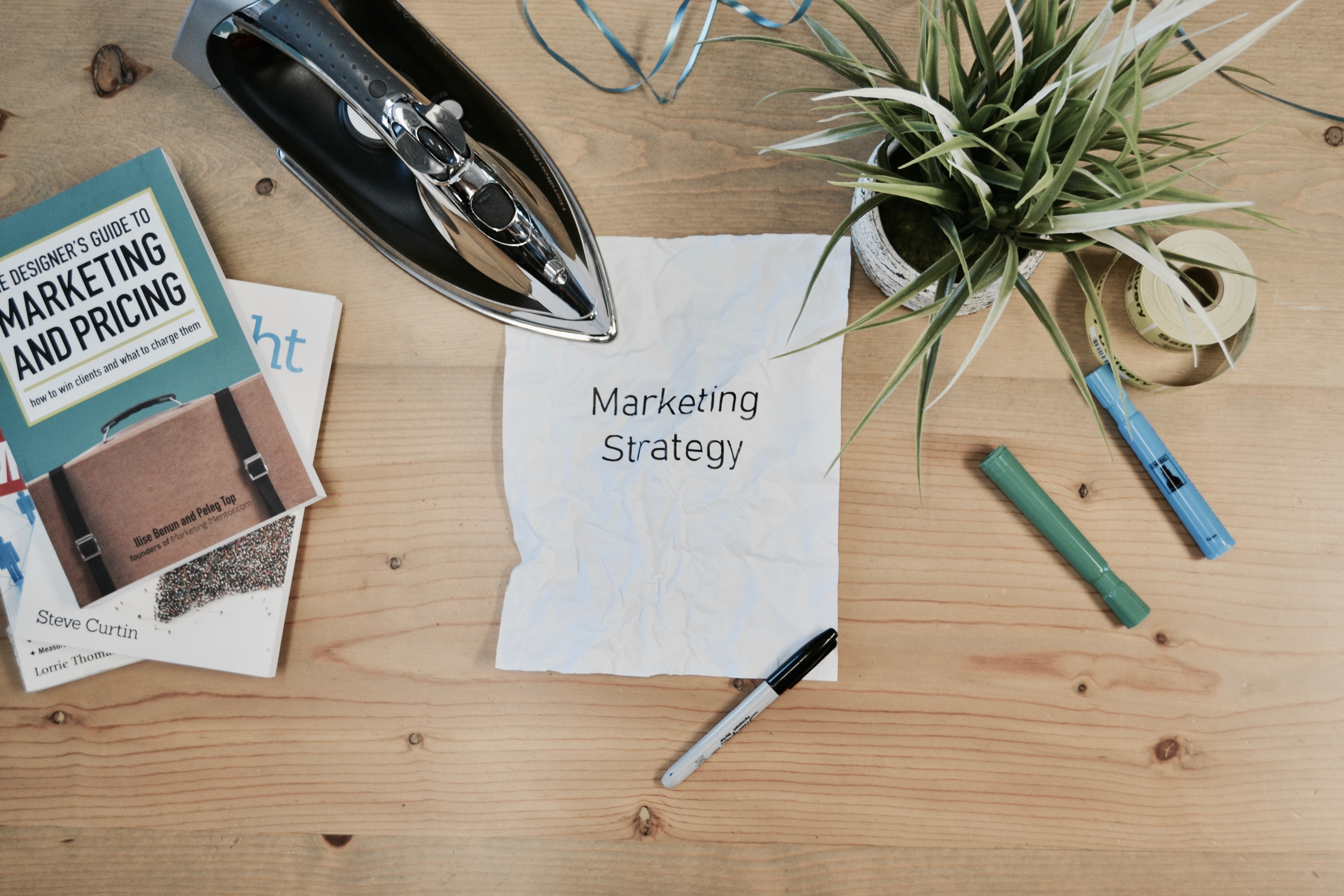Implementing a Digital Marketing Campaign That Works
An interview with Don Dodds
Do you want your business to be seen and heard? Do you need for your prospects to understand exactly what it is you do and why they should choose your company to help them? It’s more than just getting traffic to your site. Sure, that is important, but what they do when they get there is more important.
Don Dodds is the managing partner and chief strategist at M16 Marketing in Atlanta, GA. M16 is a top digital marketing agency who specializes in strategy and research, design and development and analytics and marketing. In this interview, Don shares how an individual strategy is most important for businesses to get the best return on investment from their internet marketing dollars.
Conversation with Don Dodds
Give us a little bit of background and tell us what got you started as an entrepreneur and marketer.
Don Dodds: My entrepreneurial efforts started when I was a kid probably 13, 14 years old. I had my first car washing business. I saw an opportunity and got a couple of guys to help me organize it. I started to generate some capital and saw that there was real opportunity to build something. I actually never knew the word entrepreneur, but I liked the feeling of working for myself and helping other people to grow. That got me really excited. Then, I read a book by our current President called the Art of the Deal. That book really fired me up to think big and to achieve big things. I went to college at 16 and after college, I had a really great professor who said I should check out internet marketing. I didn’t know anything about it, this was early 90’s. So, I started teaching myself HTML and graphic design. At the time the major browsers were Internet Explorer and Netscape. I started to learn about the differences and how they worked. I started to do some initial consulting and everyone around me said the internet is a fad so I shouldn’t focus on it too much. I moved to Atlanta in 1997 and soon got a consulting opportunity with Bell South and I had an opportunity to further hone some basic web design skills. About 4 years later I sold that company and some eCommerce software I developed. For the next several years I did a lot of business consulting, Microsoft based web development and marketing in the healthcare, medical education and real estate industries.
When did you start M16 Marketing?
Don Dodds: I saw a big gap where people were not really doing any kind of strategy in the digital growth space. I started to think strategically about what could be done to actually help someone grow a business, so my focus then became building relationships and innovating, and helping businesses grow with a strategic plan in mind. Strategy is the foundation for everything we do. I chose the name M16 because I’m a huge supporter of the military and the M16 is the tactical weapon of choice, but without strategy the tactics are often not very effective. I share the military philosophy that “Proper planning prevents piss poor performance.” M16 came together at the end of 2012 and the company was officially launched in January of 2013.
When did you discover there was a hole in the market and start incorporating SEO in the business?
Don Dodds: Google came to fruition around 1998 and around 2001 I started to digest the idea of what we initially called search engine ranking. By 2006 I was fully engaged with SEO, and started to work on SEO very aggressively. SEO has continued to change in terms of what you need to do in order to be successful. There was a time where people were doing all kinds of ridiculous things, but now you really need to understand that SEO is an art and science of creating organic value. Content strategy is important, figuring out what your KPIs are and who your target is is critical. On page SEO, off page SEO, user experience design, using a mobile first strategy are important aspects of SEO. It doesn’t really work effectively without having all the components.
Before we go into the actual strategy, tell me more about the kinds of clients that you help. Is there one particular area where you concentrate or do you have clients from all different kinds of areas?
Don Dodds: We help clients in many different spaces. We do a lot in the legal space, healthcare, education, financial advisory space and wealth management space. We are literally all over the place. For us, we like the excitement of exploring new areas.
Tell us about the strategy you have. How does it all work together?
Don Dodds: In order to develop a strategy we have to first understand the goal. We play in three primary buckets. Strategy and research, design and development, and analytics and marketing. Strategy and research begins with asking the right questions and listening. Listening to the client and really understanding their needs. I think one of the most important steps is what we call our discovery assessment. Clients have the best sense of what their challenges are and will talk about their pain points, you just have to listen to them. Once we understand their needs, we can move into creating a strategy that will allow us to help. We take a lot of time to ask the right questions, listen to the feedback, and then start to formulate a plan about where we need to go. Everything is about smart goals. Goals need to be specific, measurable, attainable, relevant, and timely. Most clients that aren’t zoned in on the smart goal concept, say things like, “I want my company to make $20 million this year.” It has to be more specific. How are you going to measure that? Is that goal really attainable if you only made a dollar this year? Goals need to be attainable, they need to be relevant, and everything obviously needs to have a time base attached to it. That’s how we go about really moving from one place to another. Smart goals are tremendously important.
Do most businesses have the same pain points, the same problems?
Don Dodds: It’s going to depend on the business. The common things we see are no unique value proposition, a poorly developed brand identity and a poor user experience. For example, too many call to actions on a page. If you go to a site and there are five or six calls to action on the homepage, users become confused about where they need to go and what they need to do. Not having enough white space and crowding everything up, and not speaking to the user in language that they really understand, are some of the common problems that we see across the board for all clients.
What are some of the issues with search metrics or keywords they want to rank for?
Don Dodds: Sometimes the client isn’t really sure what their keywords need to be and they go too broad which leads to the incorrect target audience. Keyword research is paramount. You can have the right keywords and throw them on the page, but if they are not positioned properly, if the sizing isn’t right, if you’re not speaking the right message with the right call to action, none of it’s really going to matter. The design, user experience, keyword research, and speaking to the target audience in a way that they understand, is really important.
Do you find that most companies have a strategy that’s just not working?
Don Dodds: Here’s some interesting data that I’ve found. 50% of businesses have no strategy at all and only 13% of those businesses that have a strategy, actually execute it. That is a big problem. We focus on helping companies plan, implement, and execute their strategy. There are specific ways that you can do that. There needs to be specified deliverables. When someone comes to the website, what do you want that experience to be? When most people are looking for information, it’s a process. We take them from education to engagement, to earning trust, credibility, and then ultimately ending up with a conversion or sale.
What does that do for the bottom line once you have a strategy? What kind of difference does that make to the business?
Don Dodds: Generally, across the board we see conversions that are minimum 250% when we employ our engagement strategy. We have lots of case studies where the conversion rate is 800% and in some cases even more. When we think about digital marketing, it’s not just the SEO piece. We blend SEO with pay per click, Google Adwords, we do a little bit of social media as well to compliment that. It really depends on what the clients needs are. Taking digital marketing as a holistic approach is really important.
You have done a great job of showing up on the map and ranking organically for your own website. How are you able to do that for yourself and your clients?
Don Dodds: Everything comes down to understanding who the target audience is and picking the right keywords and creating the right content. We have keywords that have higher volume and some have lower volume. We pick a mix of both high and low volume keywords to make sure that we have an opportunity to penetrate. Less competitive keywords gives an opportunity to really get in and start showing results and building that trust and relationship with the client. Once they start seeing those results, we’re able to pull in volume. How we make that happen? Relationship building is important, it sets clients up to be an expert in the space that they are in. If you are in the construction business, you want to be an expert. How are you perceived as an expert? Maybe you need to talk to Neil, right? Talk to you and make sure that the authority piece is in place, but also create the right kinds of blogs, white papers, other documentation, video, all of that helps to solidify you as an expert, and you really need to understand who you are and what you’re doing, and who your customer is, what they want, and what they need.
If you’re in a competitive market how are you able to rise to the top? How long does it take to get those top spots for a competitive industry?
Don Dodds: Generally, I would say that it takes a year or so of work to solidify dominance. It’s not an overnight journey by any means. SEO is a long term game. It requires patience, it requires diligence and a real understanding of what is changing. Knowing what people are looking for and being able to speak to that, ultimately helping people. It can’t just be, let’s get some links and throw up some content, it’s what are you doing to really help people once they are able to click on your site. If your site ends up not being very good and people can’t find any information, it’s going to be hard for you to increase your ranking and sustain that.
What is the most important for ranking? Is it people staying on your site for a length of time, what they’re clicking on? What signs does Google look for to say, “Okay, this is the best result that I can show?”
Don Dodds: There are a couple of things. For example, if you typed in responsive web design Atlanta, you’ll see a snippet and that actually is highlighted from our responsive web design services page. That snippet comes from having enough content that clearly explains what responsive web design is, and who we are uniquely positioned to be able to do that. That snippet is going to show up. You just have to really understand things like click through rate, conversion rate, bounce rate, exit rate and above all quality content. The algorithm is always interesting to watch and it changes daily. Sometimes the changes are very big, sometimes the changes are very small. When we see those changes, we can see what we call a Google bounce, where you may bounce up one or drop off two. Over time, if you’re looking at that and you understand what to look for, then you can sort of stabilize things over a period of time. Sometimes, changing a sentence causes us to go up or causes us to go down. We look at that very carefully. We’re able to monitor that and make the necessary changes to show up in a rich snippet like we do.
What would you say are the best practices for somebody that is trying to get their site up in the search engines for their keywords? What are the most important things for them to be doing?
Don Dodds: Create great content. Register on Google maps is very important, sharing your content with social media, and doing the right kind of research so you position yourself to create the right content. SEMrush is a tool that we use and we highly recommend it. Link building, building relationships is key. If for example, you are looking at Google Analytics, and you’re seeing that your bounce rate is really high on a particular page, that means people are leaving that page pretty quickly, they’re not finding what they want, they may be going to another page, or maybe discarding your site all together. That kind of affect is going to cause the value of your page to decrease. You need to make sure that content is tweaked, in order to provide relevant information to the user, ultimately that is what Google’s after. Google wants to make sure that their users are able to get the best information, the most relevant information for what they’re looking for.
Google is getting better and better at watching out for all those spammy things that might have worked five years ago. Now, you’ve really got to put up quality. Is that what you’re seeing?
Don Dodds: Absolutely, I think quality is very important. I hear people say you need a minimum of 300 words, but they should focus less on the quantity of words and focus more on putting up good quality content.
What are some of the myths, and misconceptions when it comes to SEO? What do you hear from some clients that are thinking about getting involved with an SEO campaign?
Don Dodds: I hear things like SEO doesn’t work. We tried it before, we’ve hired a company, we spent thousands of dollars, and never saw anything. I think a lot of times, SEO companies aren’t doing a good job of helping clients understand what SEO is, how it works, and then providing a regular report so the client can see what’s happening with the movement. They need to understand all the things that are being done to make it work. You really have to be committed to make SEO work. It takes time and effort.
What kind of time?
Don Dodds: Generally, you have lower value keywords and more highly competitive keywords. We take a mesh of both and we explain to the client our strategy. The most important thing clients want to see is progress. When we start a project, we try to get the quick wins right away. If they’re on page 10 for example, we’re generally able to move them up pretty quickly, within 30 to 45 days, with the less competitive keywords. Overtime, three months or so, they will move closer to page one. Usually in a year, but it just depends on how competitive the keyword is, we can help a client dominate.
For those companies that are thinking about SEO or they’ve heard things about SEO and haven’t really been convinced, what would say to them? What kind of things do you see that holds them back?
Don Dodds: I think it’s not getting results. When people don’t get results, they are turned off by the idea of SEO working for them. People need to understand it takes time and can’t be done overnight. They have to find the right company who understands SEO and can really help them understand the process.
You’ve worked with a lot of the different companies, financial advisors, wealth management, attorneys, medical field, are there any ones that really stick out in your mind that have had great success? Tell me their story, where were they when they came to you? What were you able to do for them? Ultimately, what was the outcome and the bottom line?
Don Dodds: We’ve got a number of case studies. One in particular, an attorney from New York, has been with us since 2012 before the company started. He was doing his website and SEO himself. He had a couple other guys who were trying to help him. He found me online and we established a really interesting relationship. I told him we had to overhaul his entire website, redo branding, get new content, basically redo everything. One of the changes we made to the website that increased conversions immediately, was the blue submit form button. We changed the button to green and changed the wording to “get divorced”. It was a simple change with a huge bottom line impact. Little things like that, increased the business year over year. I think it’s up to maybe 800% conversion increase. We’ve worked with him to bring on other attorneys because the company was growing so much and it’s getting ready to expand into another state. Those kinds of success stories are the ones that really speak volumes. Often, we end up developing personal relationships with clients. We ended up doing a lot of business coaching as well. Getting really involved in helping the business itself to grow beyond just the website and beyond SEO itself.
How can people get in contact with you to inquire about your services?
Don Dodds: The best way is to find me on LinkedIn or call the office at 404-965-3633
About Don Dodds
Don Dodds is a Managing Partner at M16 Marketing and an innovative digital marketer and strategist with more than 20 years of experience demonstrating an idiosyncratic combination of creative, technical and business acumen. He is a proven business growth strategist and a multi-award winner delivering unparalleled strategy, web design and digital marketing. He holds numerous Google certifications including search advertising, mobile advertising, video advertising, display advertising and shopping advertising.
As a serial entrepreneur and co-founder of 3 multi-million dollar organizations, he has a keen understanding of how to create and scale a business using digital marketing. Recently, he launched an incubator and marketing innovation hub in Atlanta and is the founder of DMOS, a Digital Marketing Operating System that allows businesses to plan, implement, execute, analyze, report and measure digital growth.
Dodds shares his commitment to supporting entrepreneurs as a speaker, mentor and writer for international online publications like the Huffington Post and numerous syndicated blogs.
A partial list of past and present clients included AT&T, John Deere, the State of Georgia, the Southern Company, Heidelberg, Ross University School of Medicine, Black Book, Travel, Inc, Homrich Berg, Piedmont Park, numerous law firms, financial advisory and wealth management firms, startups and large brands.



